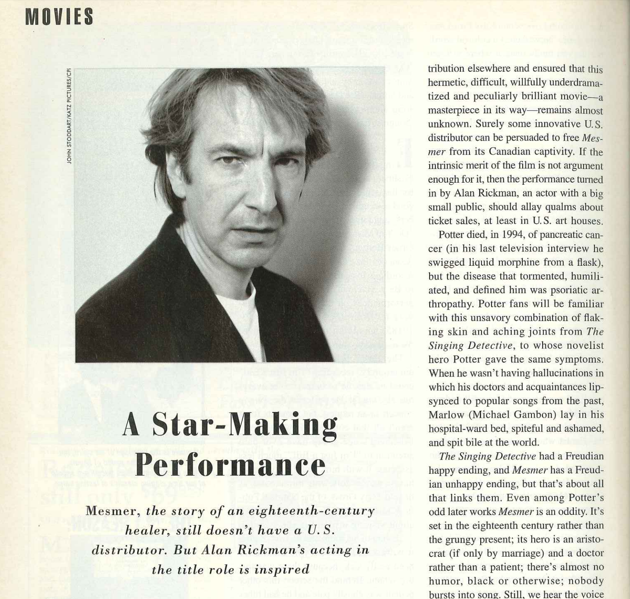Alan Rickman's Extraordinary Legacy, Cont'd

I’ll remember him, always, as Snape. His career stretches further than the Harry Potter films, but there is just something unforgettable about him moving through Hogwarts’s halls—the all black, the villainy in his cloak swelling around his ankles like a shadow. All his love hidden until the very end.
A lesser-known film role for Rickman was Franz Anton Mesmer, the famous German physician with controversial healing methods. In a review of Mesmer in the February 1998 issue of The Atlantic, Lloyd Rose reveled in Rickman’s brilliance:
Rickman is always a strong screen presence, but he’s hard to classify. You can relegate most actors either to the string section or to the brass, but Rickman somehow combines a dark, sonorous tone with something haunting and faraway, as if he’d mixed a cello with a French horn. His specialty is fusing opposing traits: he’s mannered yet honest, too much yet reserved, bored and curious, high-strung and animal-still.
This sort of complexity isn’t always useful to an actor, but it’s invaluable in roles that call for genius or mysticism. And certainly Rickman has all the equipment required to play Mesmer: charisma, intelligence, sensuality, pride, and what one critic called “the face of a Magus”—anachronistic features that make him look at home in an earlier century. (He made his reputation in a play with an eighteenth-century setting, Les Liaisons Dangereuses.)
Read more from The Atlantic:
This article was originally published on The Atlantic.
